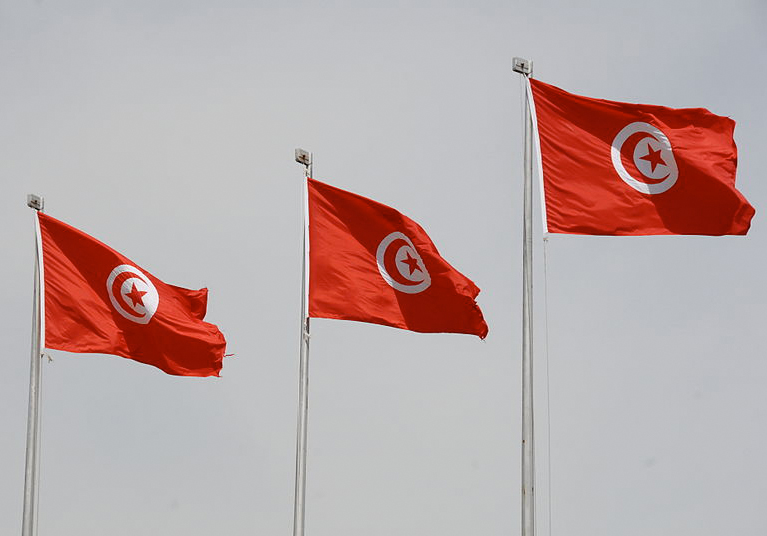
Oct 19, 2020 | News
Tunisian Parliament should reject the revised Draft Law No. 91-2018 on the state of emergency when it is tabled in the plenary session starting tomorrow, said the ICJ today.
The Draft Law is inconsistent with the rule of law and Tunisia’s international human rights obligations and should be considered further to ensure its compliance with international law and standards.
The Draft Law was approved by the Parliament’s Committee on Rights, Freedoms and External Relations on 15 May 2019. Articles 2, 3 and 4 of the Draft Law authorize the President to declare a state of emergency for one month, renewable once, “in the event of catastrophic events” or “imminent danger threatening public order and security, the security of people and institutions and the vital interests and property of the state.”
Tunisia has remained under a continuous state of emergency since 24 November 2015.
“The Draft Law would entrench the President’s power to unilaterally determine what constitutes an emergency on broad grounds,” said Said Benarbia, the ICJ’s MENA Programme Director.
“It should be amended to enhance legislative oversight over the declaration of the state of emergency, provide for effective judicial review over emergency measures, and ensure that such measures do not unlawfully infringe on the enjoyment of recognized rights and freedoms.”
Under the law, regional governors could impose restrictions on movement and prohibit gatherings where necessary for “the maintenance of security and public order.” They could suspend the activities of associations that they decide act in a manner “contrary to public order and security” that “obstructs the work of the public authorities”. The Minister of Interior may also order house arrest and other measures against anyone deemed to “hamper public order and security”, including by summoning them to appear at the police station twice a day and intercepting their communications and correspondence.
The ICJ stressed that these measures risk interference with a number of rights, including freedom of expression, association, assembly, movement and the rights to liberty.
“The proposed law would entrench opportunities for Tunisian authorities to continue perpetrating abuses of human rights under arbitrarily imposed states of emergency,” said Kate Vigneswaran, ICJ’s MENA Senior Legal Adviser.
“It’s up to Parliament to ensure that appropriate safeguards are put in place which clearly limit the basis for imposing any restrictive measure to objective criteria and a real risk of harm, not the whims and political desires of the executive.”
The ICJ said that notwithstanding the inclusion of procedural safeguards – including registration of such decisions with reasons with the Public Prosecutor – the broad basis for the imposition of house arrest is concerning given Tunisian authorities’ abusive use of house arrest in the past.
Contact:
Said Benarbia, Director, ICJ Middle East and North Africa Programme, t: +41-22-979-3817; e: said.benarbia(a)icj.org
Kate Vigneswaran, Senior Legal Adviser, ICJ Middle East and North Africa Programme, t: +31-62-489-4664; e: kate.vigneswaran(a)icj.org
Tunisia-Law of Emergency-News-2020-ENG (story with additional information, PDF)
Tunisia-Law of Emergency-News-2020-ARA (story in Arabic, PDF)
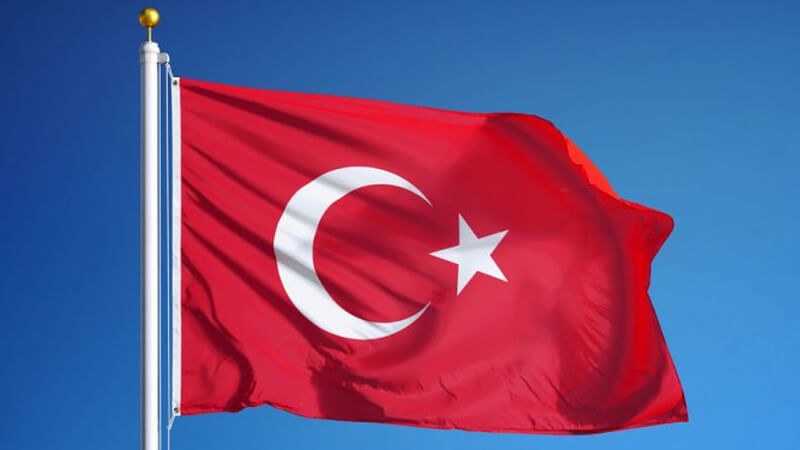
Jul 10, 2020 | Events, News
Today, the ICJ and the Human Rights Joint Platform (IHOP) are hosting an online conference to take stock of the current situation of access to justice and the rule of law in Turkey and discuss compliance with international standards and the Turkish Constitution.
The online conference features international and European experts and will address the shortcomings in accessing justice in the country both in terms of the capacity of the justice system to ensure the respect and protection of human rights and of the independence and effectiveness of the justice system itself.
The conference will take stock of the state of access to justice in Turkey after four years of extraordinary and worrisome events for the Rule of Law and human rights in the country. During this period, Turkey has experienced a severe deterioration in the rule of law. The state of emergency, in force between 2016 and 2018, has led to the cleansing of the judiciary and restricted the capacity of lawyers and civil society to act, and increasingly dramatically the arrests and trials of some of their members under spurious charges of terrorism, offences against the State, insult to the nation or its President, and hate speech crimes.
Many of the measures undertaken under the state of emergency included mass dismissal of public servants, judges and prosecutors without ensuring due process guarantees and the degradation of the justice system, depriving the judiciary of essential guarantees to ensure its independence from the political authorities.
The conference will address how these developments impacted the capacity of people in Turkey, and in particular those belonging to marginalised groups, to access justice for their human rights, and what should be done to ensure that such access exists and is effective.
As a result of the conference, a draft statement on the state of access to justice in Turkey will be issued to provide Turkish authorities with recommendations on how to ensure effective and independent access to justice for human rights protection.
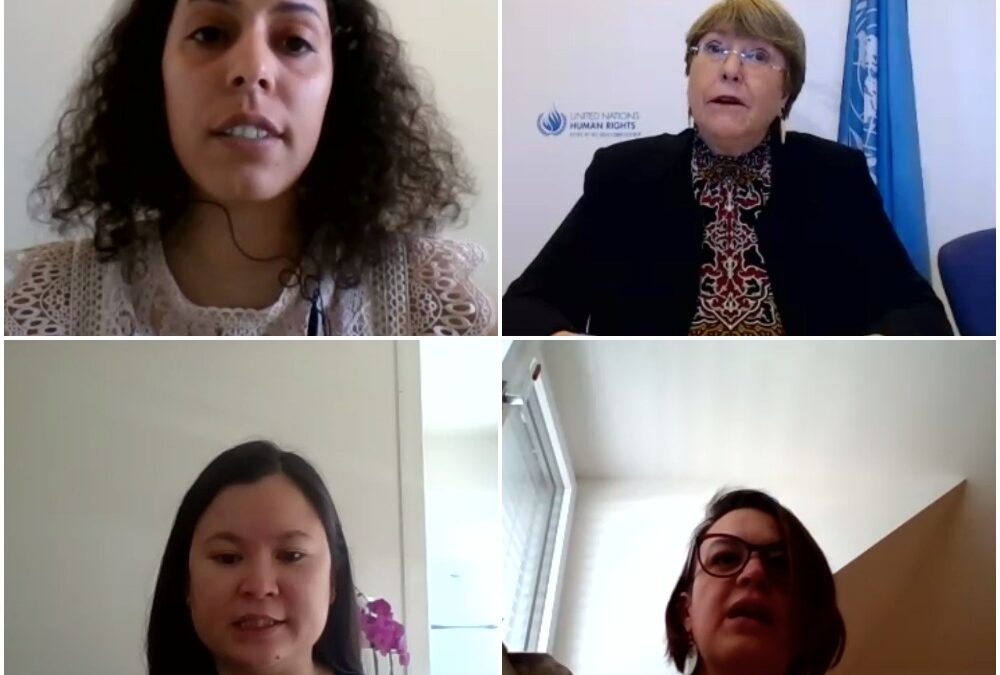
Apr 9, 2020 | Advocacy, Non-legal submissions
The ICJ has joined other NGOs highlighting key human rights issues in the COVID-19 pandemic, at a virtual meeting of the UN Human Rights Council.
In the informal conversation, exceptionally organised by video-conference, the High Commissioner for Human Rights presented a statement, as did the President of the Council and a number of States, followed by several statements by NGOs.
The ICJ joined statements delivered by CIVICUS (on civil and political rights), ISHR (on the UN system response), and FORUM-Asia (on economic, social and cultural rights), on behalf of a large number of NGOs from around the world.
The statements focussed on, among other things:
- the obligations of States individually and collectively to mobilize the maximum available resources to respond to the pandemic and protect those at risk, including by respecting, protecting and fulfilling economic, social and cultural rights;
- the need to guard against abuse of emergency powers and undue restrictions on fundamental rights, including non-discrimination, freedom of expression and right to access information, the right to privacy, rights of persons deprived of liberty, and taking into account the situation of particularly-at-risk groups;
- the role of the Human Rights Council, Special Procedures and Secretary General to monitor, report on, and respond to human rights aspects of the pandemic and States’ responses, and ensuring that civil society continues to be able to participate in all relevant UN and other processes.
The full statements may be downloaded in PDF format here:
Civil and Political Rights: UN-JointStatement-COVID19CPR-2020-final
Economic, Social and Cultural Rights: UN-JointStatement-COVID19ESCR-2020-final
United Nations Mechanisms: UN-JointStatement-COVID19UN-2020-final
Abbreviated versions were delivered in the dialogue, due to the limited time available.
In extensive and detailed closing remarks, the High Commissioner responded to many of the questions and observations made during the discussion, concluding, on the topic of access to justice in times of crisis, as follows (unofficial transcription):
“Courts become more important than ever to safeguard rights in times when major decisions with broad impact are being taken and implemented at great speed. In these circumstances, we have already seen the real risk for abuse of power, legal over-generalization and mistake. The courts must remain available to address these issues, if necessary of course by modifying their working methods. We have seen courts in many countries taking measures to ensure they remain accessible while protecting their staff and clients.”
A video recording of the event can be viewed here.
The High Commissioner’s specific remarks on access to justice can be accessed directly here.
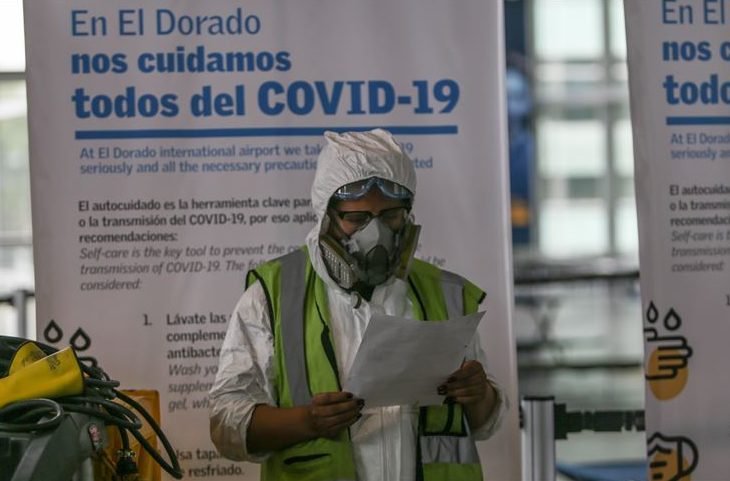
Apr 8, 2020 | Feature articles, News
A Feature Article by Rocio Quintero, Legal Adviser, ICJ Latin American Programme, based in Bogota.
Throughout several decades, a large number of Colombians have been victims of serious crimes related to the ongoing armed conflict. In particular, human rights defenders have been targets of serious human rights violations and abuses, such as killings, death threats, and harassments.
Just this year, the United Nations High Commissioner for Human Rights (OHCHR) has received information of 56 possible cases of killings of human rights defenders. Unfortunately, the COVID-19 outbreak has not stopped the violence against human rights defenders.
In that regard, since the first confirmed case of COVID-19 in the country on 6 March 2020, the Organization of American States (OAS) and International Amnesty has reported six killings. The perpetrators of those crimes have not been identified yet.
Human rights violations and abuses against local communities have not stopped either. Quite the opposite seems to be true.
In that regard, it is said that armed groups, including paramilitary groups and new groups made up of dissident FARC-EP members, are taking advantage of the outbreak to commit illegal actions with fewer constraints, mainly, in rural areas of the country.
Among these actions, it should be highlighted the enforced displacement of 250 people and the forced confinement of 770 families due to combats between a paramilitary group and a guerrilla group. Both actions took place in the pacific region of the country, an area where the conflict has intensified after the peace agreement. In addition, at least three ex-members of the FARC-EP have been murdered in March 2020.
Despite the seriousness of the situation described above, the Colombian government response to the COVID-19 crisis has focused on the creation and implementation of non-conflict-related measures.
In that regard, the Government has decreed various and vital regulations to mitigate the social and economic impact created by the virus. Among others, the president declared a state of emergency and a mandatory 19-day national quarantine that started on 25 March 2020.
The Government also established a program of economic and social aid for those who will be affected most by the quarantine.
None of the measures were designed bearing in mind the particular situation of human rights defenders. Consequently, their protection is not a central element of the Colombian pandemic policies.
Since the implementation of the peace agreement and victims’ rights are not top priorities of the current Government, the approach adopted is not entirely unexpected.
Although, to be fair, it should be recognized that the State programmes for the implementation of the peace agreement have continued operating during the pandemic.
It might be argued that the pandemic has the potential to affect predominantly human rights that have not been directly linked with the internal conflict.
Therefore, following this point of view, the prioritization of non-conflict-related measures is justified and required.
Although this position is based on a valid premise, which is that the COVID-19 pandemic creates several challenges that go beyond conflict-related human rights problems, it ignores a central element of Colombian reality: the existence of an ongoing armed conflict.
Currently, the conflict affects a considerable part of the Colombian population directly, including the majority of human rights defenders. In that regard, last year, it was reported illegal actions related to the internal armed conflict in at least 10 out of 32 departments of Colombia.
In this context, ignoring the importance of the conflict might lead to the implementation of ineffective pandemic measures. This is because, in conflict zones, the protection of human rights requires addressing the specific challenges that the pandemic has created in those territories.
For instance, the presence of illegal groups can prevent local communities from getting tested for COVID-19 and access to health services. Likewise, due to the quarantine, illegal groups might identify easier the location of human rights defenders and retaliate against them.
In relation to human rights defenders, it should also be highlighted the problems related to access to adequate protection measures. In that regard, Amnesty International has denounced that the protection measures for some human rights defenders have been reduced due to the pandemic.
In a similar way, a local NGO expressed concerns for the decision of the National Protection Unit to suspend indefinitely the sessions of the commission where protection measures are defined.
In light of the above, beyond political considerations and the general Government’s priorities, it is imperative that the Government adopts a more comprehensive approach to tackle the pandemic.
It should address the differential impact the pandemic might have on people who lead social and legal transformations in the conflict zones of the country.
In particular, it should implement or adapt protection measures to be effective during the COVID-19 crisis. Similarly, the right to an effective remedy and reparation should also be not only guaranteed, but realized, in compliance with international standards.
Additionally, it is also important that the national Government reinforce its efforts to obtain a humanitarian ceasefire by all illegal groups during the COVID-19 crisis.
A total ceasefire would contribute to (i) protecting the civilian population for violent actions, (ii) implementing the pandemic measures in conflict zones, and (iii) avoiding a proliferation of the virus in vulnerable communities.
This is a crucial measure that has already been requested by national civil organisations, the Head of the UN Verification Mission in Colombia, the OAS, and some parliamentarians.
As yet, only one illegal group has accepted a ceasefire: the National Liberation Army (Ejército de Liberación Nacional, ELN), the largest active guerrilla in Colombia, who declared a unilateral ceasefire during April.
To conclude, acknowledging the importance of the conflict is essential to tackle the human rights implications of the COVID-19 crisis.
This is not only necessary to have comprehensive pandemic policies, but also to make sure that the problems and needs in the conflict zones are not neglected and aggravated during the pandemic.
On this point, as recently stated by UN Secretary-General, people who are most vulnerable during a conflict are also “most at risk of suffering “devastating losses” from the disease.”
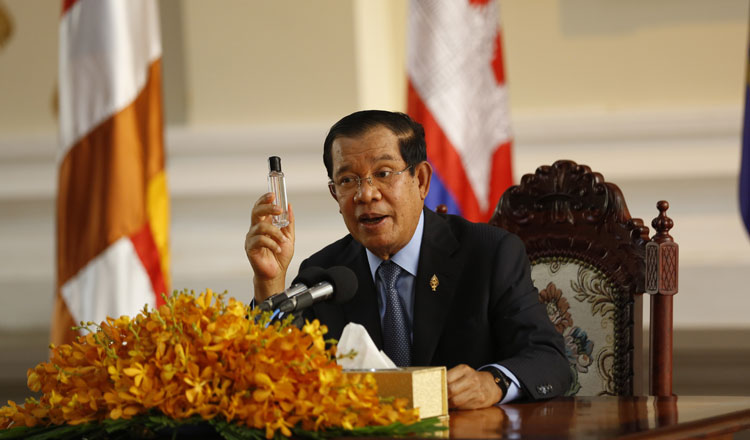
Apr 8, 2020 | News
The ICJ today warned that Cambodia’s draft Law on National Administration in the State of Emergency (“State of Emergency bill”) violates basic rule of law principles and human rights, and called on the Cambodian government to urgently withdraw or amend the bill in accordance with international human rights law and standards.
Last Friday, government spokesperson Phay Siphan explained that the government needed to bring a State of Emergency law in force to combat the COVID-19 outbreak as “Cambodia is a rule of law country”. The bill is now before the National Assembly and, if passed by the Assembly, will likely be considered in an extraordinary session convened by the Senate. The law will come into force once it has been signed by the King – or in his absence, the acting Head of State, Senate President Say Chhum.
“The Cambodian government has long abused the term “rule of law” to justify bringing into force laws or regulations that are then used to suppress free expression and target critics. This bill is no different,” said Frederick Rawski, ICJ’s Director for Asia and the Pacific.
“Any effective response to the COVID-19 outbreak must not only protect the rights to health and life, but be implemented in accordance with Cambodia’s human rights obligations and basic principles of the rule of law.”
Several serious shortcomings are evident in the State of Emergency bill, including:
- No delineation of a timeline for the imposition of a state of emergency, or criterial process for its termination. The bill provides vaguely that such declaration “may or may not be assigned a time limit. In the event that a state of emergency is declared without a clear time limit, such a state of emergency shall be terminated when the situation allows it” (article 3);
- Expansion of government powers to “ban or restrict” individuals’ “freedom of movement, association or of meetings of people” without any qualification to respect the rights to association and assembly in enforcing such measures (article 5);
- Expansion of government powers to “ban or restrict distribution of information that could scare the public, (cause) unrest, or that can negatively impact national security” and impose “measures to monitor, observe and gather information from all telecommunication mediums, using any means necessary” without any qualification to respect the rights to privacy, freedom of expression and information in enforcing such measures (article 5);
- Overbroad powers for the government to “put in place other measures that are deemed appropriate and necessary in response to the state of emergency” which can allow for significant State overreach (article 5);
- Severe penalties amounting to up to 10 years’ imprisonment of individuals and fines of up to 1 billion Riel (approx. USD 250,000) on legal entities for the vaguely defined offence of “obstructing (State) measures related to the state of emergency” where such obstruction “causes civil unrest or affects national security” (articles 7 to 9);
- No specific indication of which governmental authorities are empowered to take measures under the bill, raising concerns that measures could be taken by authorities or officials in an ad-hoc or arbitrary manner in violation of the principle of legality;
- No indication of sufficient judicial or administrative oversight of measures taken by State officials under the bill – The bill states that the government “must inform on a regular basis the National Assembly and the Senate on the measures it has taken during the state of emergency” and that the National Assembly and the Senate “can request for more necessary information” from the government (article 6) but does not clarify clear oversight procedures for accountability.
“The State of Emergency bill is a cynical ploy to further expand the nearly unconstrained powers of the Hun Sen government, and will no doubt be used to target critical comment on the government’s measures to tackle COVID-19,” said Rawski.
“If passed in its current form, this bill will reinforce the prevailing lack of accountability which defines the government in Cambodia. The government’s time would be better spent developing genuine public health policy responses to the crisis.”
Contact
Frederick Rawski, ICJ Asia Pacific Regional Director, e: frederick.rawski(a)icj.org
To download the statement with detailed background information, click here.
See also
ICJ report, ‘Dictating the Internet: Curtailing Free Expression, Opinion and Information Online in Southeast Asia’, December 2019
ICJ report, ‘Achieving Justice for Gross Human Rights Violations in Cambodia: Baseline Study’, October 2017
ICJ, ‘Cambodia: continued misuse of laws to unduly restrict human rights (UN statement)’, 26 September 2018
ICJ, ‘Misuse of law will do long-term damage to Cambodia’, 26 July 2018
ICJ, ‘Cambodia: deteriorating situation for human rights and rule of law (UN statement)’, 27 June 2018
ICJ, ‘Cambodia human rights crisis: the ICJ sends letter to UN Secretary General’, 23 October 2017









